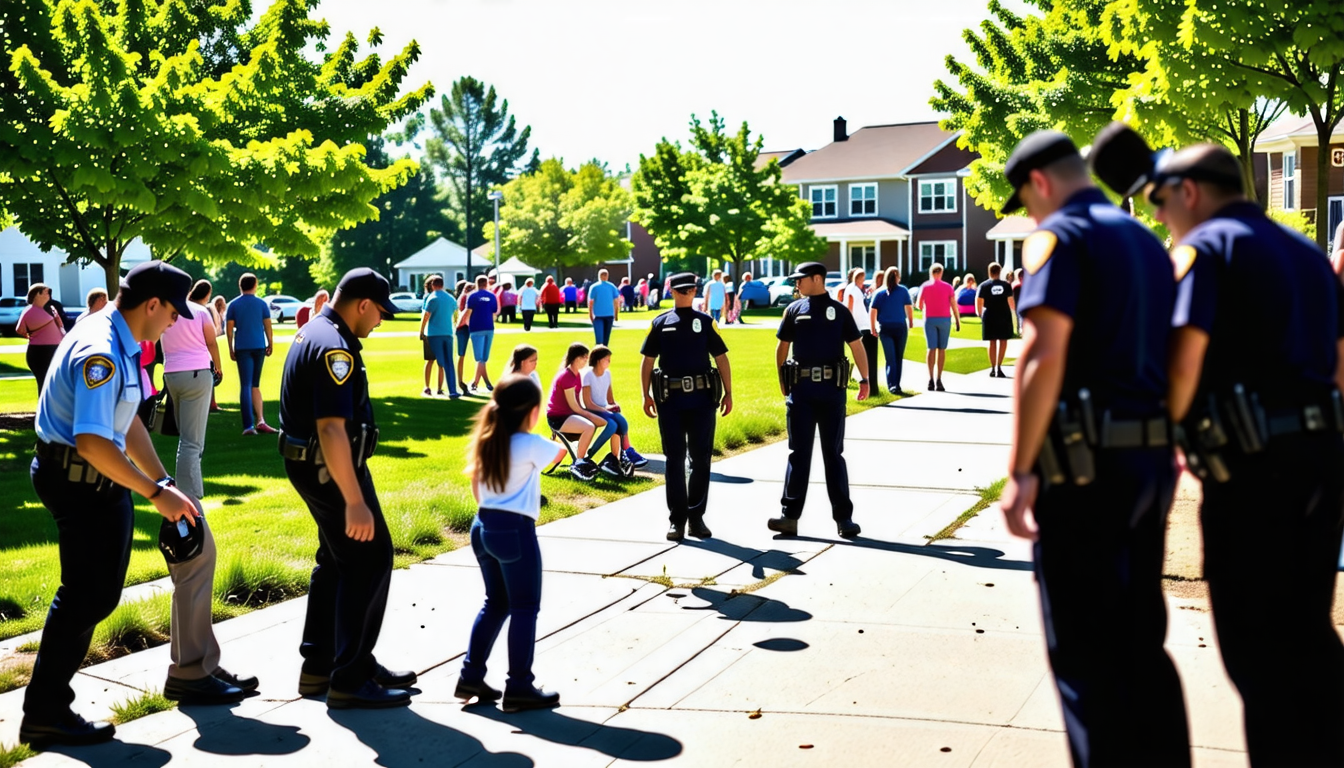|
IN BRIEF
|
The landscape of law enforcement in Canada is rich and diverse, offering a multitude of career opportunities that cater to various interests and skills. From the iconic Royal Canadian Mounted Police (RCMP) to local city police departments, there is a wide array of roles that extend beyond traditional policing. These positions not only encompass the duties of police officers but also include specialized careers like forensic science technicians, crime analysts, and cybercrime specialists. Each role plays a vital part in maintaining community safety and upholding justice. The process of becoming a police officer or entering other law enforcement fields in Canada involves rigorous training, clear requirements, and a commitment to serving the public, making it a noble and rewarding career path for those dedicated to making a difference.
Canada’s law enforcement field is vast and multifaceted, offering numerous career paths for individuals interested in upholding justice and ensuring public safety. The range of careers available goes beyond just becoming a police officer. This article details various roles within Canadian police services, outlining the diverse opportunities that cater to different interests and skill sets.
Requirements for International Students
While requirements may vary between different institutions and agencies, a commitment to understanding local laws, cultural norms, and community dynamics is essential for international students aspiring to work in Canadian police services. Language proficiency in both English and French can also be a valuable asset.
Specialized Units within Police Services
Alongside traditional roles, police services in Canada offer the opportunity to join specialized units. These include Cybercrime, Homicide, and Forensic Identification units, among others. Each unit is focused on specific challenges faced by law enforcement and requires unique skills and training.
For example, the Cybercrime Unit addresses crimes committed through computers or the internet, requiring officers to have a strong understanding of technology. Alternatively, the Homicide Unit investigates serious crimes, and members perform detailed analyses of crime scenes and evidence. These roles not only provide excitement but also contribute significantly to the community’s safety.
Training and Development for Specialized Roles
Transitioning into specialized roles often requires undergoing a particular training program. This education equips officers with the necessary techniques and knowledge base to successfully handle their new responsibilities. For instance, forensic identification officers learn about evidence collection and analysis, which is crucial when solving serious crimes.
When considering career opportunities in Canadian police services, it becomes evident that the landscape is both diverse and dynamic. The Royal Canadian Mounted Police (RCMP) offers an impressive array of over 150 specializations, allowing for continuous learning and growth. This includes roles beyond traditional policing, such as forensic science technicians, cybercrime specialists, and crime analysts.
Furthermore, regional police forces, like the Vancouver Police Department, consistently recruit for various positions within their departments. For instance, they recently sought applicants for Communications Operators, indicating a proactive approach to meet staffing needs in anticipation of future vacancies here.
The average salary for police officers in Canada varies but stands approximately at $110,137 per year as of 2024, making the field not only rewarding in terms of societal contribution but also financially appealing here.
Additionally, the recruitment process typically requires a comprehensive application and training regimen, tailored for both local residents and international candidates aspiring to join forces in Canada, highlighting the field’s commitment to diversity and inclusion in law enforcement here.
In Canada, the landscape of police services offers a rich tapestry of career opportunities for individuals looking to serve their communities. Aspiring police officers can explore numerous specialized roles within organizations like the Royal Canadian Mounted Police (RCMP) and municipal forces. From forensic scientists to cybercrime specialists, the spectrum of law enforcement careers is broad and diverse. Not only do these positions ensure public safety, but they also provide avenues for professional growth and continuous learning. With the country emphasizing community engagement and public service, the demand for dedicated personnel remains strong. Individuals interested in joining this field should focus on meeting the necessary requirements and honing their skills to contribute positively to society.
FAQ
R: Canadian police services offer a diverse range of career opportunities beyond traditional police officer roles. Positions such as forensic science technician, crime analyst, communications operator, and specialized units like cybercrime, homicide, and neighbourhood policing are available.
What qualifications are needed to become a police officer in Canada?
R: To become a police officer in Canada, candidates typically need to meet certain requirements including a high school diploma or equivalent, completion of police training academies, and passing physical and psychological assessments. Additionally, some services may require post-secondary education or specific skills.
Are there opportunities for career advancement in policing?
R: Yes, there are numerous opportunities for career advancement within Canadian police services. Officers can specialize in various fields and switch roles, with many services offering over 180 different career paths for experienced members.
What is the average salary for police officers in Canada?
R: The average salary for police officers in Canada varies depending on the province and experience level. As of 2024, entry-level positions might start around $50,000 annually, while experienced officers can earn upwards of $100,000.
Can international students apply for police jobs in Canada?
R: Yes, international students may apply for police jobs in Canada; however, they must typically meet the same application requirements as Canadian applicants. This may include language proficiency and adherence to standard background checks.
